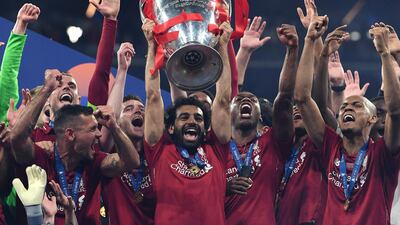News that the arrival of Mo Salah at Liverpool FC has coincided with a sharp drop in Islamophobia in the city is bittersweet. Since the Egyptian footballer signed for the club in 2017, he has become one of the English Premier League's most recognisable and successful players. Fittingly, his penalty in the Champions League final on Saturday propelled Liverpool towards cup glory over fellow English club Tottenham Hotspur. Salah – who performs the sujood prayer as a goal celebration – is a beacon of sporting prowess for this region and a role model for its millions of children. Now, a report produced by Stanford University's Immigration Policy Lab suggests that his presence is rubbing off on the people of Merseyside. Since the people of Liverpool took Salah to their hearts, the city has witnessed an 18.9 per cent drop in hate crimes, while anti-Muslim tweets by Liverpool fans have halved.
It is a reflection of Salah's affability and family-man persona that he is, in the words of the report, "humanising" Muslims. But people should not need to be reminded by sporting success that Muslims are normal members of society. There is value in opening minds as Salah has done. As the report notes: "Viewers see what a Muslim prayer looks like, perhaps for the first time, when Salah scores." However, adoration from fans for such an accomplished player should not be seen as an achievement; it should be a given.
Meanwhile, declining levels of Islamophobia in Liverpool have come amid a rise elsewhere, both in stadiums and on British streets. This month, Muslim groups renewed calls for extra security after incidents at mosques in London and Cardiff. Following the terrorist attack in Christchurch, New Zealand, in which 51 people were shot dead, reports of Islamophobia in the UK rose by a horrifying 593 per cent. So concerned are Muslim communities that many have implemented their own security measures around mosques. It is not to diminish Salah’s triumphs, either on or off the pitch, to insist that tolerance and acceptance of Muslims be based on recognition of our shared humanity, not on goal-scoring ability.

